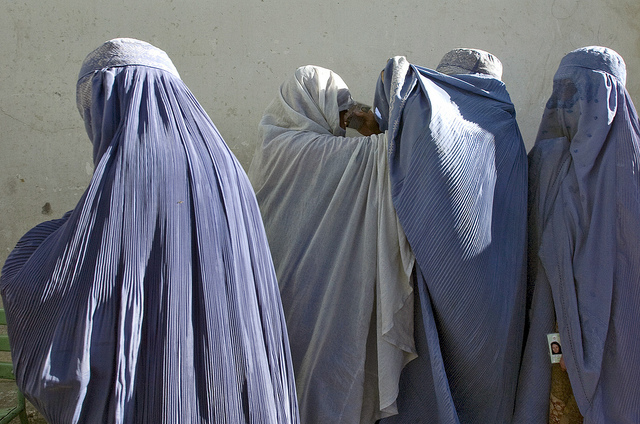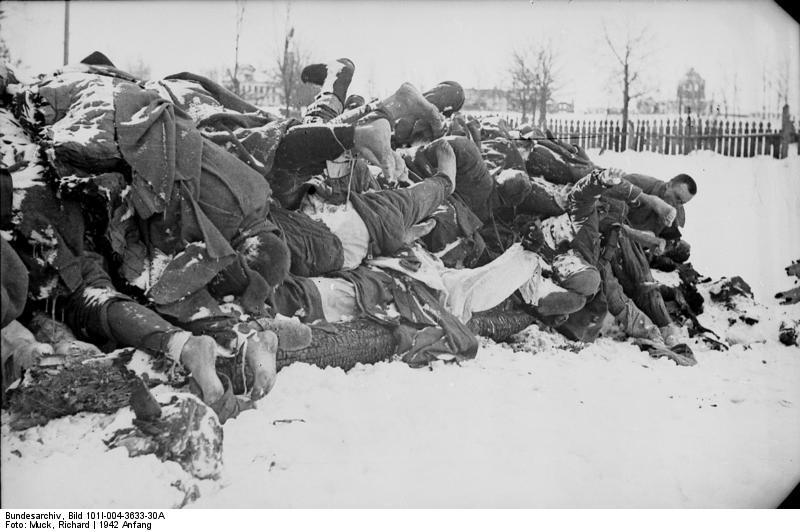By Andrew Kydd.

My impression of the Israeli-Palestinian conflict today is that it has entered a Cold War phase. In their conflict, the US and the Soviet Union pursued a long term struggle with the adversary. Crucially, each side thought they would prevail over the long haul through economic growth, military spending, and the competition for allies in the third world. This expectation of long term success meant that both sides preferred to avoid both all out conflict and serious negotiations over their differences. However, since power is relative, at least one side had to be wrong, in this case the Soviet Union. Once that became clear, the two sides negotiated settlements of their outstanding differences, which lasted until Russia regained a degree of its former power and began to contest the post-Cold War settlement.
Similarly, in the Israeli-Palestinian case the two sides are avoiding both all out conflict and negotiations. The two state solution has been abandoned and the parties are back to pursuing incompatible one state solutions. Both sides expect to grow stronger over time. Of course, time cannot be on both sides, so someone will eventually realize that their relative position is weakening rather than strengthening. At that point another critical juncture will arise for negotiations or a return to conflict.
On the Israeli side, the thinking seems to be as follows: A two state solution would involve painful compromises over territory in the West Bank that is important both for ideological and security reasons. Even if a two state solution were implemented, Israel would not get peace for the land, because the Palestinians would arm themselves and attack in the future. The current system, however, keeps the Palestinians weak and minimizes the threat they pose. The Wall protects Israel from terrorist attacks such as those of the early 2000s. The Iron Dome, combined with punishment raids into Gaza and Lebanon, protects Israel from rocket attacks. Occasional flare-ups of violence can be handled by the security forces and serve to further justify the uncompromising strategy. The current threat environment is therefore manageable. There are no rewards to be gained for making concessions and no cost to be paid for not making them. Israel can even afford to gradually extend its settlements into strategic areas of the West Bank since the Palestinians are too weak to do anything about it and international condemnation is largely toothless.
On the Palestinian side, the Palestinian Authority leadership appears too weak to sell painful compromises to its people. A decade of peace with Israel has produced no results and brought them not a millimeter closer to a Palestinian state – even just on the West Bank, leaving aside Gaza – further undermining the authority of the PA. Instead, the Israelis continue to build and extend their settlements. A strategy of violent opposition also seems hopeless, however, since the Wall makes it easier for the Israelis to stop terrorist attacks. So the Palestinians seem to have fallen back on the demographic strategy. Eventually, given the higher Palestinian birthrate, Palestinians will outnumber Israeli Jews between the river and the sea. At that point, they will demand equal political rights in the one state covering that territory. By analogy to the end of apartheid in South Africa, eventually this struggle will succeed and Palestinians will govern Palestine once more, with a Jewish minority.
The demographic trends once persuaded even Israeli hawks, such as Ariel Sharon, to support disengagement and an eventual two state solution. The fact that they no longer do suggests that hawks have some answer to this question that is at least persuasive to themselves. Three broad options seem available. One is to permanently disenfranchise the West Bank Palestinians, to just say no to their demands for equal rights. The second is to make life so hard for the Palestinians that many eventually leave for Jordan or other Arab countries. A third possibility is evicting the Palestinians by force. The Palestinians and surrounding Arab states would of course protest any of these options vigorously. However, they alone might not be able to inflict sufficient costs on Israel to prevent it from pursuing their chosen course of action.
The real downside comes from the broader international community. Israel depends upon economic ties and decent political relations with European countries and the United States. Those ties are beginning to fray. The BDS movement is but the tip of the iceberg. The idea of boycotting Israeli academics is idiotic and has been soundly defeated even in left leaning, pro-Palestinian academic professional associations. While such boycotts would be symbolic in any case, the real potential threat is economic boycotts. Consumers worldwide, but particularly in Europe and the US, are increasingly concerned with the provenance of the goods they purchase. They buy fair trade coffee, sweatshop-free clothing, organic foods, etc. An open move towards an apartheid system, to say nothing of of ethnic cleansing, will make an economic boycott of Israel a no-brainer for these consumers. This will likely be a boycott not just of goods produced in the occupied territories, but all goods produced in Israel.
Israeli hawks may argue that any boycotts that arise are a product of anti-Semitism – of which there is certainly no shortage in the world – and are not conditional on Israeli behavior. However, in Europe and the United States it is a fringe view, and certainly not held by the center or anything close to a majority of the population. The broad electorate in the US and Europe is only reluctantly coming to embrace a view that the Israeli policy is unjust and unsustainable, and that pressure from outside is required. The current Israeli government seems to feel that the only political party whose support Israel requires is the Republican party of the United States. Indeed, Republicans would probably support Israel regardless of their policy towards the Palestinians, whereas the support of Democrats, and most European parties, is conditional on not treating them too badly. It was recently argued in a New York Times op-ed that Israel has a “problem” with the Democratic party. Unfortunately, pursuing the one state solution is going to make that problem, and the problem with most European parties, worse as time goes by. Even the once rock solid Republican party is beginning to show strains, as Trump takes over the Presidential nomination and leads the party into uncertain waters.
What this all bodes for the future is unclear. Bargaining theory tells us that when two conflicting sides involved in bargaining both think their bargaining power will increase in the future, they have incentives to avoid conflict and negotiations now and bide their time, as in the Cold War. However, since all power is relative, both sides cannot be correct about these expectations indefinitely. At some point, one side will realize that it is not getting stronger, but weaker. At that point there may be successful negotiations or there may be a return to conflict. The Cold War ended peacefully because the declining power, the Soviet Union, had nuclear weapons and could protect its vital interests even as it made substantial concessions. If Israel eventually discovers it is the declining party, its nuclear weapons and overall strength may make for peaceful negotiations once again. If the Palestinians realize they are the declining party, they will have no means of protecting their vital interests and so may opt for conflict. In any event, betting on successful negotiations would be optimistic – especially given historical experience in the region – so a return to conflict seems more likely.
I just returned from a visit to Israel sponsored by the Leonard Davis Institute for International Relations at Hebrew University. I thank Dani Miodownik for his kind invitation and the other participants for a very informative conference.







